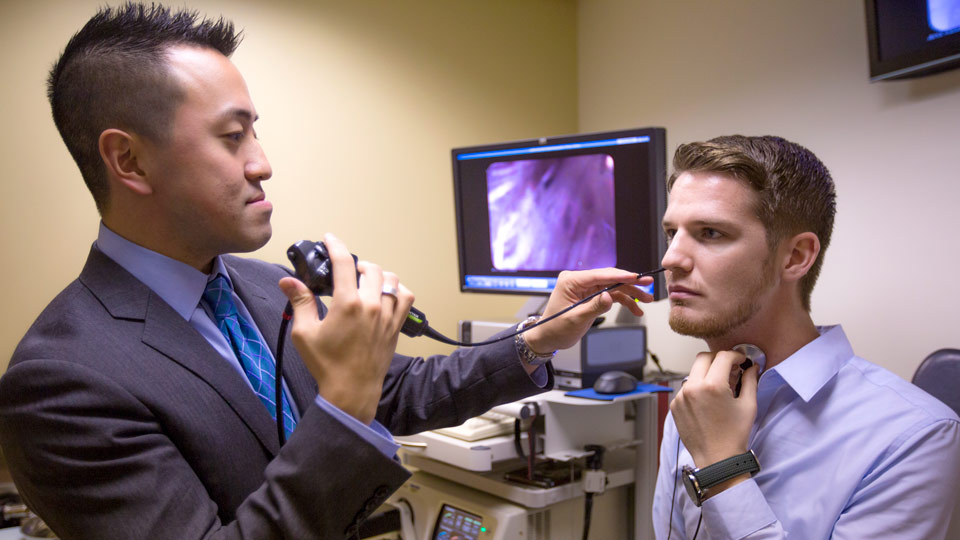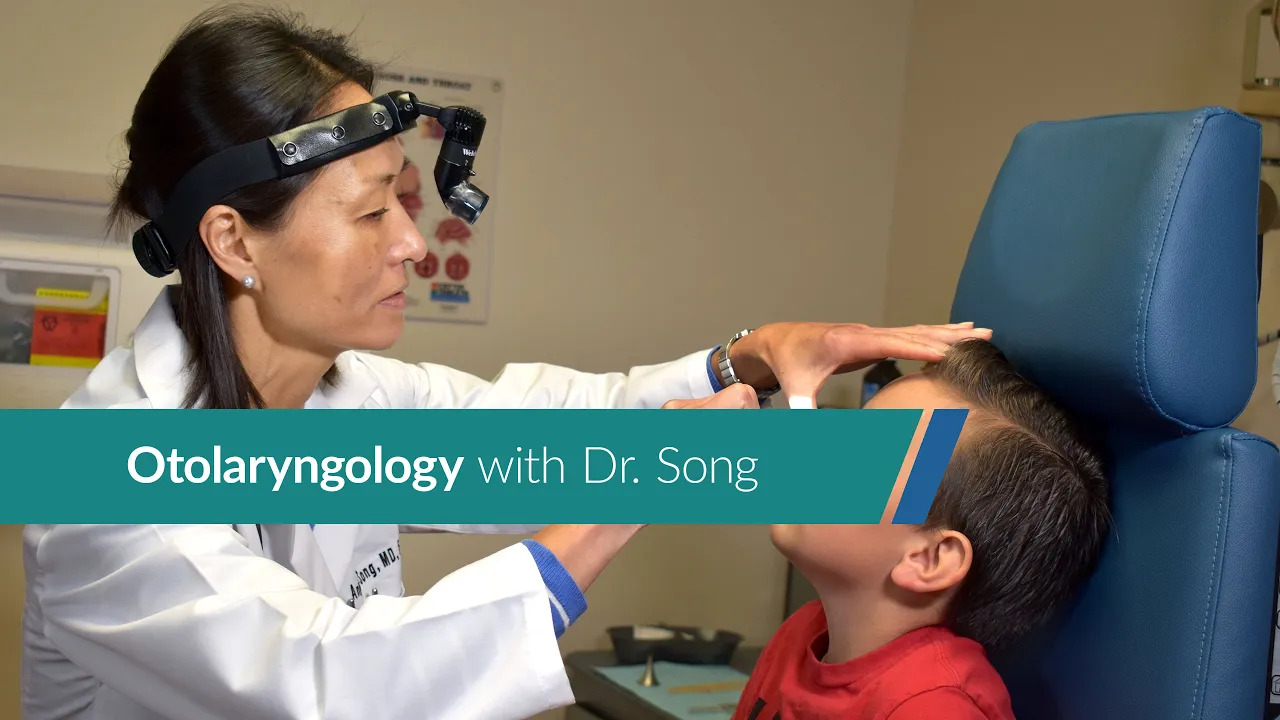Discovering the Field of Otolaryngology: What to Anticipate When You Consult an ENT
Otolaryngology, frequently referred to as ENT, encompasses the diagnosis and treatment of nose, ear, and throat disorders. For those experiencing associated concerns, seeking advice from an ENT expert can offer clearness and relief. Recognizing what to expect during such appointments is essential for efficient interaction and treatment. This introduction will certainly describe crucial facets of the ENT experience, including common factors for visits and the procedures entailed in medical diagnosis and therapy.

Understanding Otolaryngology: An Overview
Otolaryngology, often referred to as ENT (Throat, nose, and ear) medication, is a specific branch of medicine that focuses on the medical diagnosis and treatment of problems affecting these essential areas of the body. This field includes a broad variety of disorders, consisting of those associated to hearing, balance, respiratory system function, and speech. Otolaryngologists are educated to take care of both clinical and surgical treatments, utilizing innovative strategies and modern technologies. Their competence expands past standard disorders, resolving problems such as allergies, sinus infections, and hearing loss. Furthermore, they play a critical duty in the management of head and neck cancers, offering thorough treatment tailored to specific patient requirements. Generally, otolaryngology stays essential for keeping health and wellness and lifestyle in damaged individuals.
Common Reasons to See an ENT Specialist
Lots of people look for the proficiency of an ENT expert for a selection of factors, mirroring the varied nature of conditions that impact the ear, nose, and throat. Typical problems consist of chronic sinusitis, which frequently causes consistent nasal blockage and face discomfort. Allergies and their associated symptoms, such as sneezing and itching, additionally motivate brows through to these professionals (ENT Doctor). Hearing loss, whether abrupt or steady, is an additional significant reason for assessment. On top of that, people might look for assessment for throat problems, including consistent hoarseness or ingesting troubles. Rest apnea, characterized by disrupted breathing during rest, is regularly attended to by ENT experts also. Each of these conditions highlights the value of specialized care in managing complex ENT-related health problems
Planning for Your ENT Appointment
When planning for an ENT consultation, it is necessary to gather pertinent information and take into consideration any details concerns. Patients need to compile a detailed medical background, consisting of previous ear, nose, or throat issues, surgical treatments, and present drugs. Recording signs-- such as regularity, extent, and duration-- can provide useful understandings for the ENT specialist. Furthermore, individuals should prepare a list of concerns they want to ask, guaranteeing that all worries are attended to throughout the check out. Bringing along any relevant clinical records or test results can additionally aid the ENT in recognizing the patient's condition. Lastly, clients ought to validate their consultation information, including day, place, and time, to reduce any kind of last-minute confusion. Correct preparation can enhance the performance of the examination and cause much better outcomes.
What to Anticipate Throughout the Appointment
As the appointment starts, the client can expect to engage in a detailed discussion with the ENT specialist concerning their signs and medical history. The specialist will ask about the duration, regularity, and seriousness of signs and symptoms such as hearing loss, nasal blockage, or sore throat. In addition, the client's previous clinical problems, drugs, and any appropriate family members background will certainly be reviewed, assisting the expert in creating a total understanding of the patient's wellness. The ENT may also ask regarding way of living elements, such as exposure to irritants or irritants. This open dialogue establishes a structure for the assessment, ensuring that the individual's problems are dealt with and establishing the stage for look at here any type of essential assessments or recommendations for therapy.
Analysis Examinations and Procedures in Otolaryngology
An array of diagnostic examinations and treatments are important in otolaryngology to accurately review and identify conditions influencing the throat, ear, and nose. Usual examinations include audiometry, which gauges hearing feature, and tympanometry, analyzing middle ear stress. Nasal endoscopy permits visualization of the nasal flows and sinuses, while laryngoscopy takes a look at the throat and singing cords. Imaging techniques, such as CT scans and MRIs, supply detailed views of head and neck structures. Allergic reaction screening might also be carried out to determine triggers for sinus or respiratory system problems. These diagnostic tools make it possible for ENT experts to establish a thorough understanding of individuals' problems, making sure customized and efficient management plans. Correct medical diagnosis is necessary for successful therapy end results in otolaryngology.
Treatment Choices Used by ENT Specialists
ENT specialists use a variety of treatment options customized to attend to certain conditions affecting the throat, ear, and nose. These treatments vary from conventional techniques, such as drug and way of living alterations, to even more invasive treatments. Allergic reactions might be handled with antihistamines or immunotherapy, while chronic sinus problems could require nasal corticosteroids or sinus surgery. For hearing loss, ENT professionals commonly suggest hearing aids or surgical interventions like cochlear implants. In cases of throat conditions, options can include speech therapy or procedures to remove blockages. In addition, they might provide advice for managing rest apnea, including blog here using CPAP tools or medical interventions. Generally, the objective is to enhance patients' high quality of life via customized care and efficient treatment approaches.
When to Look For Follow-Up Treatment With an ENT
Recognizing when to seek follow-up care with an ENT professional is vital for taking care of recurring symptoms or difficulties associated to throat, ear, and nose conditions. Clients should consider scheduling a follow-up visit if symptoms linger regardless of preliminary treatment, such as chronic ear pain, nasal blockage, or throat discomfort. Changes in hearing, equilibrium concerns, or uncommon nasal discharge may likewise necessitate more evaluation. Furthermore, if a person experiences side impacts from prescribed medicines or has gone through an operation, follow-up treatment is necessary to keep an eye on recuperation and attend to any kind of concerns. Prompt assessments can ensure reliable administration of conditions, avoid possible difficulties, and give peace of mind regarding one's wellness. Seeking follow-up treatment advertises aggressive health and wellness management in otolaryngology.
Regularly Asked Questions

What Qualifications Should I Seek in an ENT Expert?
When seeking an ENT professional, one need to try to find board certification, appropriate experience, and strong person testimonials. Additionally, reliable communication skills and a caring technique can substantially boost the general treatment experience.
Just how Do I Pick the Right ENT for My Needs?
Picking the best ENT expert includes assessing their credentials, experience, and individual testimonials (Otolaryngology). It is necessary to ponder their communication design and strategy to treatment, ensuring they align with the individual's specific wellness demands and choices
Exist Any Threats Related To ENT Procedures?
The threats related to ENT procedures might include infection, bleeding, anesthetic complications, and potential damage to bordering frameworks. Clients need to go over these risks with their doctor to comprehend specific concerns and warranty educated decisions.
How Can I Take Care Of Anxiousness Before My ENT Consultation?
To take care of stress and anxiety before a consultation, people can exercise deep breathing workouts, envision positive outcomes, prepare inquiries beforehand, and click here to find out more seek assistance from good friends or family members, promoting a feeling of confidence and calmness.
What Should I Do if I Experience Side Impacts From Treatment?
The person must immediately report them to their health care copyright if side results from therapy occur. Adjustments to therapy or extra interventions may be required to guarantee security and efficiency in handling their problem - Hearing. As the consultation starts, the individual can anticipate to involve in a comprehensive conversation with the ENT expert concerning their signs and medical history. These diagnostic devices allow ENT experts to establish a comprehensive understanding of clients' conditions, making sure tailored and efficient management plans. ENT professionals use a variety of therapy alternatives customized to attend to certain conditions affecting the ear, nose, and throat. When seeking an ENT expert, one ought to look for board certification, pertinent experience, and solid person evaluations. Selecting the best ENT professional includes evaluating their credentials, experience, and client evaluations